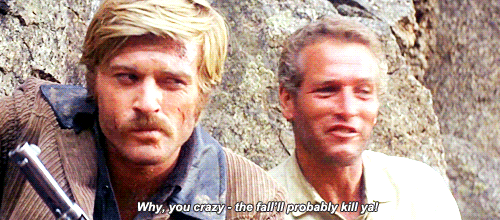#goldman
Photo

I had two little daughters - I think they were 7 and 4 at the time - and I said, 'I'll write you a story. What do you want it to be about?' One of them said 'a princess' and the other one said 'a bride.' I said, 'That'll be the title.'
- William Goldman, The Princess Bride
#goldman#william goldman#quote#literature#books#film#cinema#movies#princess bride#fantasy#arts#culture#childhood film
617 notes
·
View notes
Text

drew my friend @dwn049's oc gold man with like, a vintage furred robe, or one reminiscent of it. We talked about it b4 but im like, its close to xmas sort of so its just his santa baby fit... kinda.
Rn now its more than appropriate to do. (:
#megaman oc#rockman#goldman#my art#hi korn#thank u for letting me play dolls w ur ocs#also sorry i keep bringing the santa baby joke back i think im funny sometimes#this is transparent but i know tunglr will mess it up sigh
31 notes
·
View notes
Text
A curious find: On October 15th 1988 Saturday Night Live aired a sketch about Albert Goldman, who had published a controversial John Lennon biography earlier that same year. The premise of the sketch is that Goldman wrote The Lives of John Lennon to enact revenge on John who, taking Elvis Presley's advice – Goldman had also published a highly critical Elvis biography in 1981 – fired Goldman from the Beatles 25 years earlier.
While the sketch isn't super funny (though it has its moments) I find the fact it exists quite fascinating. This biography clearly made a huge splash at the time, even in general pop culture, and the way SNL frames Goldman as solely vindictive and his book as pure fabrication, rather than uncharitable sensationalism and worst-case-scenario speculation, is interesting.
#dude this is the third time i try to upload this#and its all snl's fault because this sketch is way too long and poorly paced.#fiona.docx#video#goldman#meta#88
18 notes
·
View notes
Text






#sharpwin#sharpwinedit#goldman#goldmanedit#ryan eggold#freema agyeman#SIGH these two will be the death of me
40 notes
·
View notes
Text

#philosophy#quotes#Emma Goldman#Anarchism and Other Essays#Goldman#character#personality#individuality#sympathy#empathy#compassion#solidarity
33 notes
·
View notes
Text

Katharine Hepburn et Peter O'Toole dans "Le Lion en Hiver" d'Anthony Harvey (1968) - d'après la pièce de théâtre éponyme de James Goldman (1966) évoquant les intrigues menées autour de la succession d'Henri II d'Angleterre (1133-1189) avec de son épouse Aliénor d'Aquitaine et leurs trois fils Richard Coeur de Lion", Jean Sans Terre et Geoffroy II de Bretagne - décembre 2023.
6 notes
·
View notes
Text
Have some really old ec doodles from over a year and a half ago because I just found them and thought I should share ( god it's horrific)



Bird boy, Charles and gold statue guy
#G's neck is so long wtf happened#elementia chronicles#elementia chronicles fanart#kingcharles xiv#blackraven#goldman
5 notes
·
View notes
Text


Goldman Sachs’ foray into consumer #banking in 2016 was quickly heralded as (and seemed to be) a great success. A few days ago, the bank announced an almost $3 billion loss from that business. Let’s take a look.
Despite the initial skepticism, Marcus proved a huge success: by 2020, Marcus was one of the fastest-growing #digital #banks in the US with more than $80 billion in deposits and $5 billion in loans.
Aggressive pricing, state-of-the-art #technology, reliable customer service and a well-known brand name count among the reasons for the rise. Markus’ success was twice important because - on top of commercial reasons - it exemplified one thing: how traditional financial institutions (Goldman was founded in 1869) can adapt to the #digital age and compete with #fintech players.
Several things have gone wrong:
1) Goldman’s overly aggressive pricing (to gain market share) during the boom years
2) Poor risk #management with more than 25% of card loans going to financially weak customers and a provision rate at subprime levels
3) Expanding defaults as a result of the deteriorating macro environment
4) Bad management decisions such as the one to merge (previously independent) Marcus with the wealth management segment
5) Service quality (i.e. disputes over chargebacks) not being able to keep up with an increasing customer base.
The credit card business is traditionally a hard one to crack, more so for newcomers even if they are called #Goldman_Sachs. And there seems to be no way back for what was once hailed as one the company’s biggest successes. Timing and bad management decisions have proven – once more – an unbeatable combination.
Reawd more, the full article at: 👉
Opinions: my own, Graphic sources: #Goldman Sachs, Roel Wieringa
____________________________
Please leave comments, subscribe and follow my news on my official social media pages: Telegram, LinkedIn, Facebook, Twitter, Gettr, Reddit, and Tumblr.
🤝 𝐑𝐞𝐢𝐧𝐢𝐬 𝐓𝐔𝐌𝐎𝐕𝐒. @reinis_tumovs
#tumovs #reinis #reinis_tumovs #rtumovs #rtgroup #тумовс #banker #neobanker #тумовс_банкир #tumovs_banker
#tumovs#wkwgroup#тумовс#fintech#defi#rtumovs#reinis tumovs#neobankers#goldman#goldman sachs#apple inc#apple news#apple card#bankers#bank#digital currency#digital#digital banking
7 notes
·
View notes
Quote
Well-meaning persons are now working for a new departure in the prison question, — reclamation to restore once more to the prisoner the possibility of becoming a human being. Commendable as this is, I fear it is impossible to hope for good results from pouring good wine into a musty bottle. Nothing short of a complete reconstruction of society will deliver mankind from the cancer of crime. Still, if
the dull edge of our social conscience would be sharpened, the penal institutions might be given a new coat of varnish. But the first step to be taken is the renovation of the social consciousness, which is in a rather dilapidated condition.
Emma Goldman, Anarchism and Other Essays
#prison reform#social reform#socialization#philosophy#emma goldman#goldman#1910#goldman 1910#anarchism and other essays#politics#anarchism#acab#quotes#quote#quotation#prison abolition#crime
4 notes
·
View notes
Text

To have peace there must be strife; both are part of the structure of the world and requirements🔑⚜️
4 notes
·
View notes
Photo

Butch: What happened to the old bank? It was beautiful.
Guard: People kept robbing it.
Butch: Small price to pay for beauty.
- William Goldman, Butch Cassidy and the Sundance Kid: Screenplay (1970)
In a brilliant William Goldman script peppered with memorable lines, the first exchange sets the tone of this classic Western movie. Butch looks around a bank at closing time, chatting with the security guard as he perhaps sizes up his next job.
“What happened to the old bank? It was beautiful.”
“People kept robbing it.”
“That’s a small price to pay for beauty.”
Right away, Goldman establishes Butch as a charismatic mouthpiece for the quip-ready screenwriter, contrasting nicely with the Sundance Kid, Robert Redford’s taciturn sharpshooter. But he’s also created two heroes who break the western mold, neither justice-seeking white-hats nor grizzled, sneering black-hats, and not as traditionally masculine as either party. Butch is a man who appreciates beauty and art, but doesn’t have the stomach for violence; it’s not until late in the film that we (and the Kid) discover that he’s never shot a man before and he looks sickened to have to do it. He’s a pleasure-seeker above all else: robbing banks and trains are his way to make an easy living and enjoy whatever sinful freedoms his vocation affords him.

Audiences in 1969 were all too happy to embrace the light, quippy irreverence of Butch Cassidy and the Sundance Kid after a turbulent summer, and Goldman, director George Roy Hill, and the two impossibly handsome stars made them feel cool for doing it. True Grit had performed well earlier in the year as a throwback to the genre’s past, giving John Wayne a proper victory lap, but Butch Cassidy was thoroughly modern, a star-making vehicle for Newman and Redford that reflected a need for the genre to turn the page and that feels as much of its time as it does authentic to Wyoming in the late 1890s. With Katherine Ross at the centre of a love triangle between friends, the film attempted to bring a French Jules and Jim vibe to the American mainstream, taking a lesson from the French new wave on how to revive old Hollywood craft.
It still works spectacularly well. There’s an alchemy up and down the production. Redford possesses easy charm, which parries so well with Newman’s smarts that the two would run it back again with Hill a few years later in The Sting.

The pop doodling of Burt Bacharach’s musical score is about as far from a traditional western score as possible, but it somehow meshes with the sepia sheen of Conrad Hall’s photography, which burnishes the legend of these two men while their story is still being told. And while Goldman’s screenplay dances on the edge of glib, it’s lively and sophisticated, with a strong theme about the capitalist forces that really tamed the Wild West.
Butch Cassidy and the Sundance Kid is such a rollicking good time that it takes a while to notice it’s about the end of the line for its heroes, whose celebrity is already widespread when the film opens and ultimately hastens their demise. “Your times is over and you’re gonna die bloody,” warns a sheriff, prophetically, in an early scene, and the film is mostly about Butch and Sundance getting chased out of America by hired guns and dying at the hands of the Bolivian army.

They’re mostly guilty of stealing from the wrong guy: EH Harriman, the railroad tycoon, spends more trying to catch them than they rob from his safes, but it’s an opportunity for a powerful man to send a message about who’s really in charge. Guys like Butch and Sundance can handle local lawmen and half-hearted posses, but they can’t fight progress. The EH Harrimans along with the the Rockefellers, JP Morgans, and the Carnegies and of the world - the original robber barons - would make certain of that.
#goldman#william goldman#quote#butch cassidy and the sundance kid#film#movie#cinema#hollywood#paul newman#robert redford#cowboys#western#america#wild west#society#culture#arts#capitalism
150 notes
·
View notes
Text

My last comm for rn ...
Clean 2 character fullbody sketch w celshading for @raggedy--ann of their oc Musicman and their partner @dwn049's oc Goldman having a little moment, sharing a cigarette. (:
26 notes
·
View notes
Photo

2 notes
·
View notes
Text
"What is patriotism? Is it love of one's birthplace, the place of childhood's recollections and hopes, dreams and aspirations? Is it the place, where, in childlike naivety, we would watch the fleeting clouds, and wonder why we, too, could not go so swiftly? The place where we would count the miliard glittering stars, terror-stricken lest each one "an eye should be," piercing the very depths of our little souls? Is it a place where we would listen to music of the birds, and long to have wings to fly, even as they, to distant lands? Or the place where we would sit at mother's knee, enraptured by wonderful tales of great deeds and conquests? In short, is it love for the spot, every inch representing dear and precious recollections of a happy, joyous, and playful childhood?
If that were patriotism, few American men of today could be called upon to be patriotic, since the place to play has been turned into factory, mill and mine, while deafening sounds of machinery have replaced the music of the birds. Nor can we longer hear tales of great deeds, for the stories our mothers tell today are but those of sorrow, tears and grief.
What, then, is patriotism? "Patriotism, sir, is the last resort of scoundrels" said Dr. Johnson. Leo Tolstoy, the greatest anti-patriot of our times, defines patriotism as this principle, that will justify the training of wholesale murderers; a trade that requires better equipment for the exercise of man-killing than making of such necessities of life as shoes, clothing and houses; a trade that guarantees better returns and greater glory than that of an average workingman.
Gustave Herve, another great anti-patriot, justly calls patriotism a superstition - one far more injurious, brutal, and inhumane than religion. The superstition of religion originated on man's inability to explain a natural phenomena. That is, when primitive man heard thunder or saw the lightning, he could not account for either, and therefore concluded that back of them must be a force greater than himself. Similarly, he saw a supernatural force in the rain, and in various other changes in nature. Patriotism, on the other hand, is a superstition artifically created and maintained through a network of lies and falsehoods; a superstition that robs man of his self-respect and dignity, and increases his arrogance and conceit.
Indeed, conceit, arrogance and egoism are the essentials of patriotism. Let me illustrate. Patriotism assumes our globe is divided into little spots, each one surrounded by an iron gate. Those who had the fortune of being born on some particular spot, consider themselves better, nobler, grander, more intelligent than the living beings inhabiting other spot. It is, therefore, the duty of everyone living on that chosen spot, to fight, kill, and die in the attempt to impose his superiority upon all the others. The inhabitants of the other spots reason in like manner, of course, with the result that, from early infancy, the mind of the child is poisoned with blood-curdling stories about the Germans, the French, the Italians, Russians etc. When the child has reached manhood, he is thorougly saturated with the belief that he is chosen by the Lord himself to defend HIS country against the attack or an invasion of any foreigner. It is for that purpose that we are clamoring for a greater army and navy, more battleships and ammunition. It is for that purpose that America has within a short time spent four hundred million dollars*. (13 billions in today's money) Just think of it - four hundred million dollars taken from the produce of the PEOPLE. For surely, it is not the rich who contribute to patriotism. They are cosmopolitans, perfectly at home in every land. We in America know well the truth of this. Are not our rich Americans Frenchmen in France, Germans in Germany or Englishmen in England? And do they not squander with cosmpolitan grace fortunes coined by American factory children and cotton slaves? Yes, theirs is the patriotism that will make it possible to send messages of condolence to a despot like the Russian Tsar, when any mishap befalls him, as President Roosevelt did in the name of HIS people, when Serigus was punished by the Russian revolutionists.
It is patiotism that will assist the arch-murderer, Diaz, in destroying thousands of lives in Mexico, or that will even aid in arresting Mexican revolutionists on American soil and keep them incarcerated in American prisons, without the slightest cause or reason.
But then, patriotism is not for those who represent wealth and power. It is good enough for the people. It reminds one of the historic wisdom of Frederic the Great, the bosom friend Voltaire who said: "Religion is a fraud, but it must be maintained for the masses."
Emma Goldman, Anarchism and Other Essays, Patriotism: A Menace to Liberty
I wholeheartedly recommend you reading the essay in it's entirety. It is but a 6 pages long, but contains many useful insights on the matter.
#book quote#quotes#anarchy#anarchism#antinationalism#antifascism#antifascist#emma goldman#goldman#book recommendations#philosophy#society
3 notes
·
View notes
Text

#philosophy#quotes#Emma Goldman#Socialism Caught in the Political Trap#Goldman#change#progress#ideals#utopia#politics
22 notes
·
View notes
Text
"Il faudra que tu apprennes"
Jean-Jacques Goldman
4 notes
·
View notes